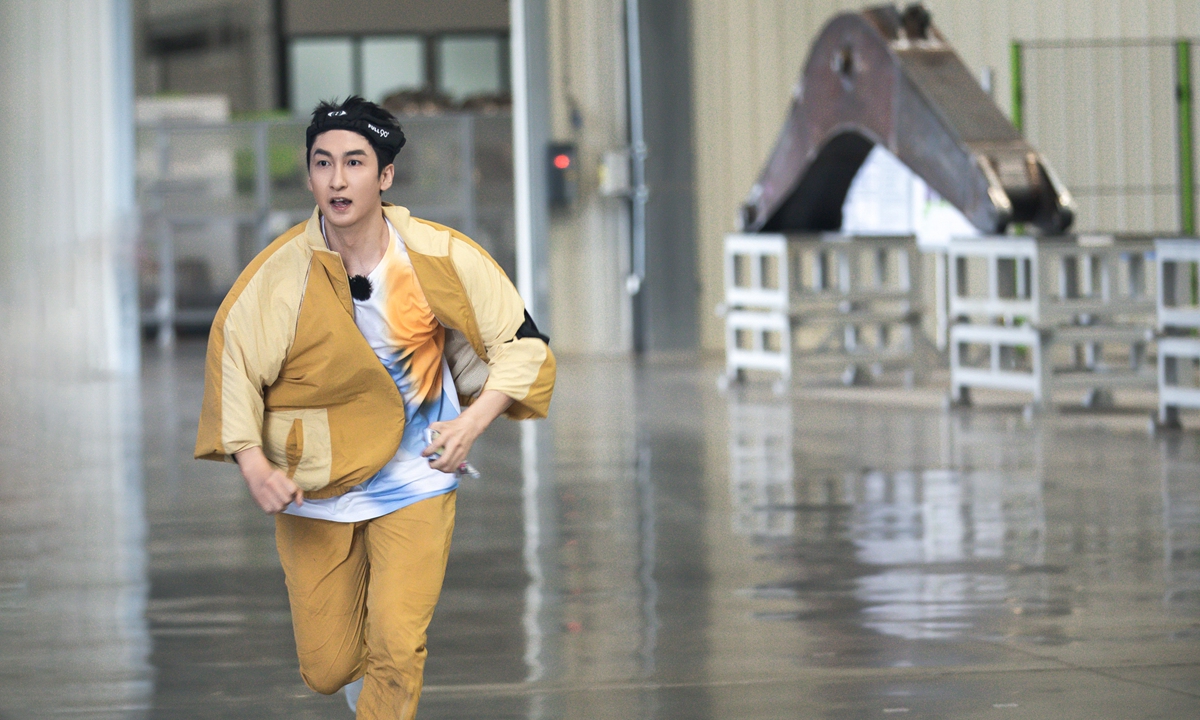
Chinese short track speed skating world champion Wu Dajing in Run for Time Photo: Courtesy of Mango TV
Saturday, June 10, was the Cultural and Natural Heritage Day in China. The theme for the 2023 iteration was "Strengthening the Protection of Intangible Cultural Heritage and Promoting Sustainable Development," which aims to further raise people's awareness and create a good social atmosphere for the protection of intangible heritage.
From cultural TV shows such as
Shape of Culture and
Masters in the Forbidden City by from state-run stations to shows from other platforms like
Run for Time 3 by streaming giant Mango TV, productions focusing on the country's cultural heritage have attracted tens of millions of young viewers by presenting the charm of traditional Chinese culture.
Debuting on Saturday, the latest season of
Run for Time will not only visit the country's top heavy machinery maker Zoomlion to explore China's rapid rise, but also document various places across the country to demonstrate the inheritance and conservation of the nation's cultural heritage.
Led by young actors, singers and athletes like Wu Dajing, William Chan Wai Ting and Ouyang Nana, young audiences will visit Nanjing Garden Expo Park.
They will learn about China's traditional gardens, green cities and urban design and explore Rebala village in Central China's Hunan Province to learn about the local Tujia ethnic group's cultural heritage and how it adapts into modern life.
Chinese President Xi Jinping stressed on June 2 on Chinese culture's long and continuous history and the extensive and profound nature of Chinese civilization at a meeting on the inheritance and development of Chinese culture.
A profound understanding of the history of Chinese civilization is essential to promoting the creative transformation and innovative development of traditional Chinese culture in a more effective manner, pushing further ahead with the building of a cultural sector with Chinese characteristics as well as developing modern Chinese civilization.
Cultural shows like National Treasure and
Run for Time 3 are answering the call for "innovative development of fine traditional Chinese culture in a more effective manner" as they spread traditional culture, shape national identity, adopt multiple narrative methods and connect young Chinese people with the past.
With efforts from these TV programs and other mediums, more and more Gen-Zs in China are falling in love with Chinese art and demonstrating their cultural confidence on the international arena by speaking out for Chinese culture.




